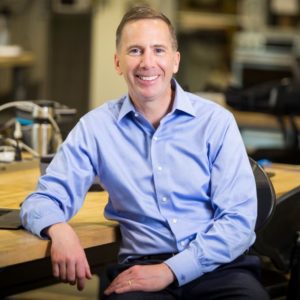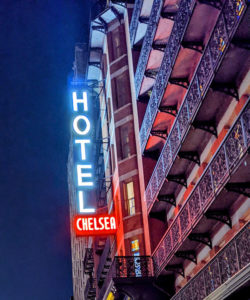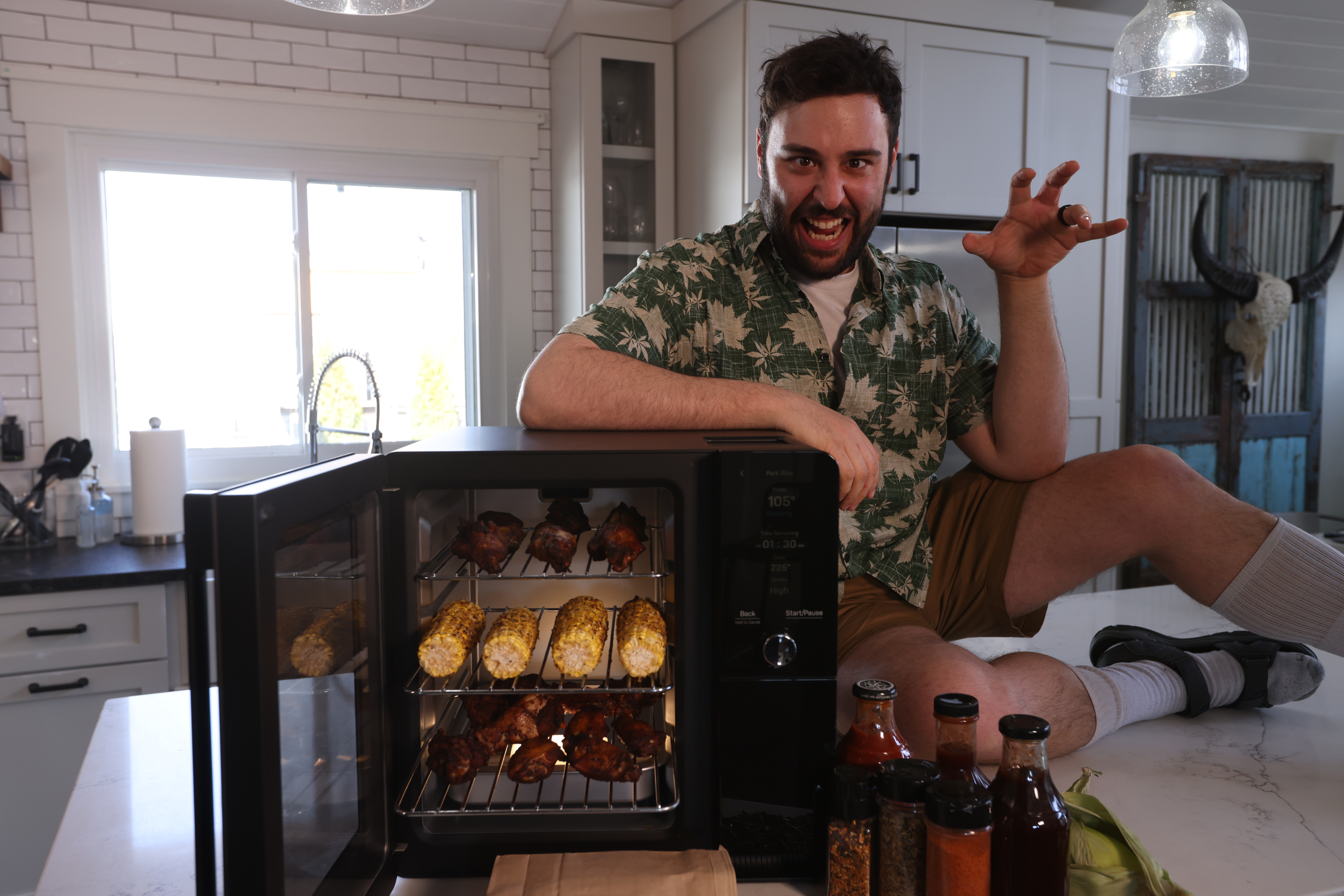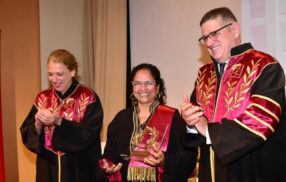
How GE Appliances CEO Applied Lessons from Artists’ Commune to Drive Innovation — And It Worked
By Molly Mitchell
Even if you don’t recognize the name Hotel Chelsea, you certainly know the art that came out of the iconic residential hotel-slash-bohemian artists’ colony in Manhattan. Does Madonna, Mark Twain or Jackson Pollock ring a bell? How about Bob Dylan, Patti Smith or Arthur C. Clarke? Sex Pistols, anyone? These cultural phenoms are among the many, many famous and infamous artists who lived and worked at the Chelsea Hotel. Kevin Nolan, President & CEO of GE Appliances, spoke recently at UVA Darden’s Leadership Speaker Series and explained how he took inspiration from the extraordinary creative structure and output of Hotel Chelsea to reinvent how GE Appliances does innovation – and it worked.

Kevin Nolan is president & CEO of GE Appliances. An engineer, maker and former New York punk scene habitué, Nolan holds 29 patents during his more than 30-year career with the company. GE Appliances is now the fastest-growing appliance company in the US.
Nolan explained that when he started at GE Appliances in 1997, outsourcing manufacturing was the name of the game. The prevailing thought at the time was that the U.S. would become a service economy, and that was a good thing. Fast forward to 2014. Stagnation plagued the company, and according to Nolan, “no significant innovation” was happening.
After years of experience in engineering, Nolan knew traditional innovation models, such as the four-phase innovation tunnel driven by a waterfall program execution model, would fail to accomplish the transformation the company needed. So, he turned to what he argued could be “the most successful innovation lab that ever existed,” the Chelsea Hotel. He discovered that the output of world-changing creative work consistently coming out of the artist’s commune wasn’t an accident; it sprang from a great deal of intentional design underlying all the sex, drugs and rock ‘n roll for which it is primarily known.
The minds behind Hotel Chelsea believe that “forced collisions” between diverse people, ideas and disciplines generated unique creative work. A similar idea is expressed in the Krebs Cycle of Creativity, a map that uses the biological Krebs Cycle as a metaphor for the generation of creative energy.
Nolan used those principles from both to design GE Appliances’ innovation lab, FirstBuild.

Photo: Chelsea Hotel Night, Janine and Jim Eden, under CC BY 2.0
Nolan identified key characteristics of the hotel to channel as closely as possible into FirstBuild:
- Goal is the creation of innovative art
- Diversity at its core
- Guided by the hotel manager
- Freedom to pursue anything
- Continuous feedback and collaboration
For FirstBuild, these ideas translated to:
- The goal is passion-driven innovation for people and communities
- Making sure the staff, creators and visitors are from a diversity of backgrounds, fields, interests, socioeconomic status and age
- Guided by principles rather than a single mastermind or management
- Projects pursued decided by consumers and creators
- Continuous feedback and collaboration
“It’s very anti management in many ways,” Nolan said. “As CEO of GE Appliances, I cannot tell FirstBuild what to do at all. That’s up to the community.” Eight years later, it’s working. “I think we we’ve proven this model is so much more successful than what I was doing before, and so much more efficient,” Nolan said. The company has seen tremendous profit growth, and GE Appliances has been recognized as the fastest-growing appliance company in the U.S.
Other factors layered into FirstBuild’s approach to innovation include adopting agile methodology for hardware, a self-funded model and a significant shift in leadership style. “Everyone sees what you’re doing. And sometimes that’s uncomfortable. This leadership model really requires humility,” Nolan said. “You can’t tell people what to do. You can’t tell people how to do things. You’ve got to understand that there’s value in every individual.”
The University of Virginia Darden School of Business prepares responsible global leaders through unparalleled transformational learning experiences. Darden’s graduate degree programs (MBA, MSBA and Ph.D.) and Executive Education & Lifelong Learning programs offered by the Darden School Foundation set the stage for a lifetime of career advancement and impact. Darden’s top-ranked faculty, renowned for teaching excellence, inspires and shapes modern business leadership worldwide through research, thought leadership and business publishing. Darden has Grounds in Charlottesville, Virginia, and the Washington, D.C., area and a global community that includes 18,000 alumni in 90 countries. Darden was established in 1955 at the University of Virginia, a top public university founded by Thomas Jefferson in 1819 in Charlottesville, Virginia.
Press Contact
Molly Mitchell
Associate Director of Content Marketing and Social Media
Darden School of Business
University of Virginia
MitchellM@darden.virginia.edu








